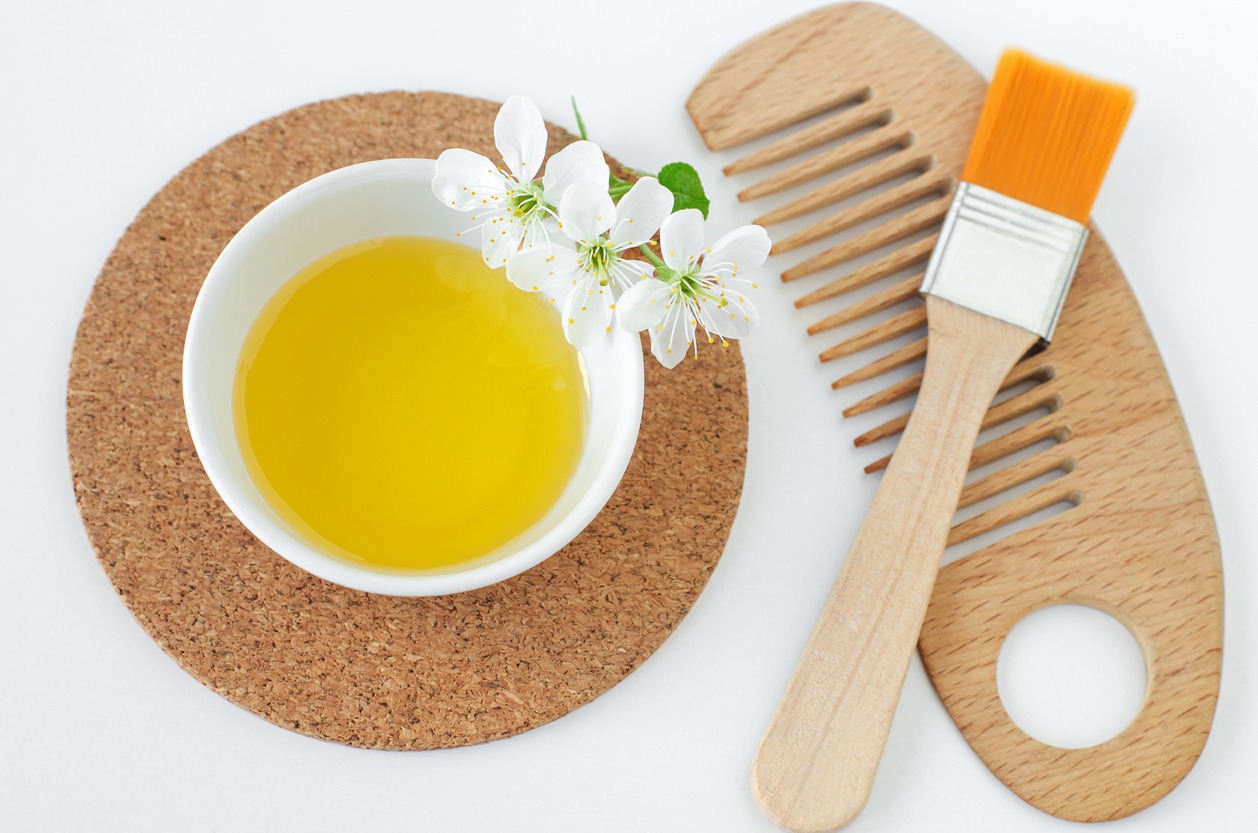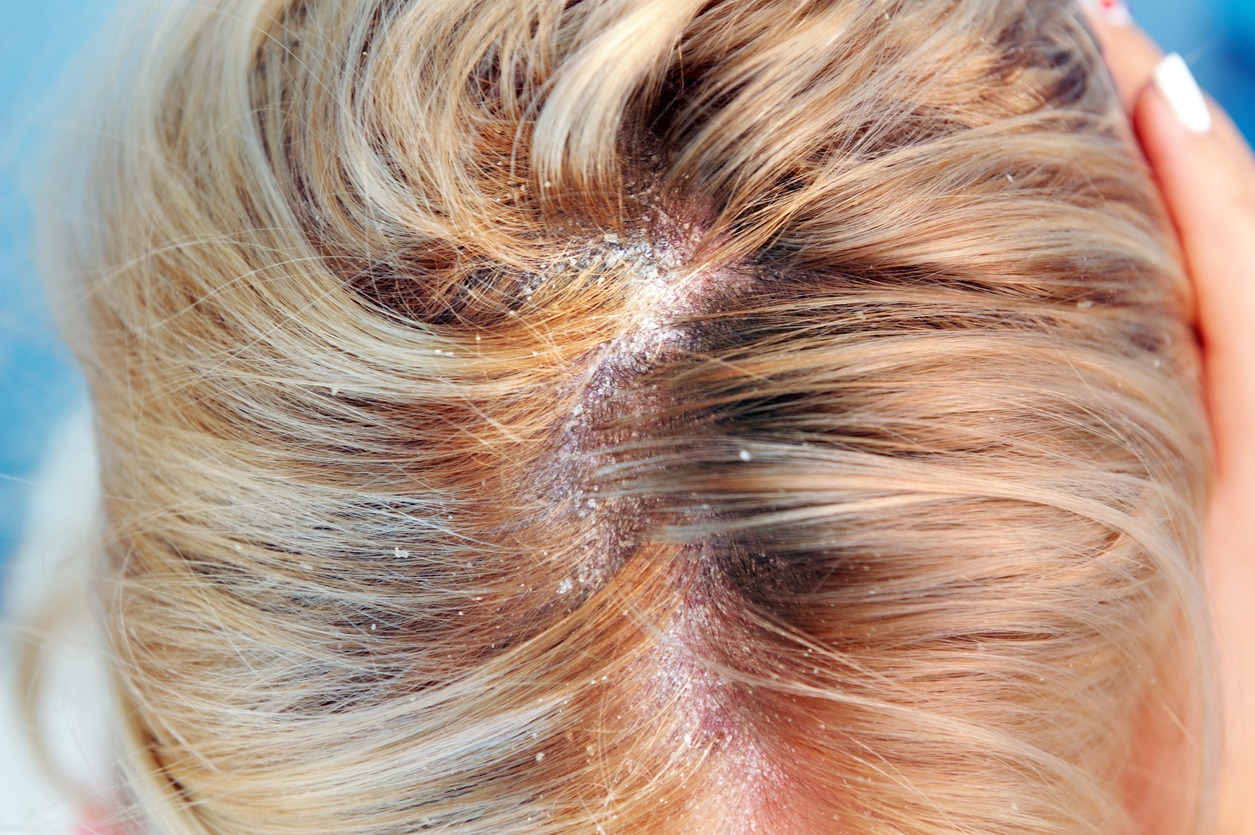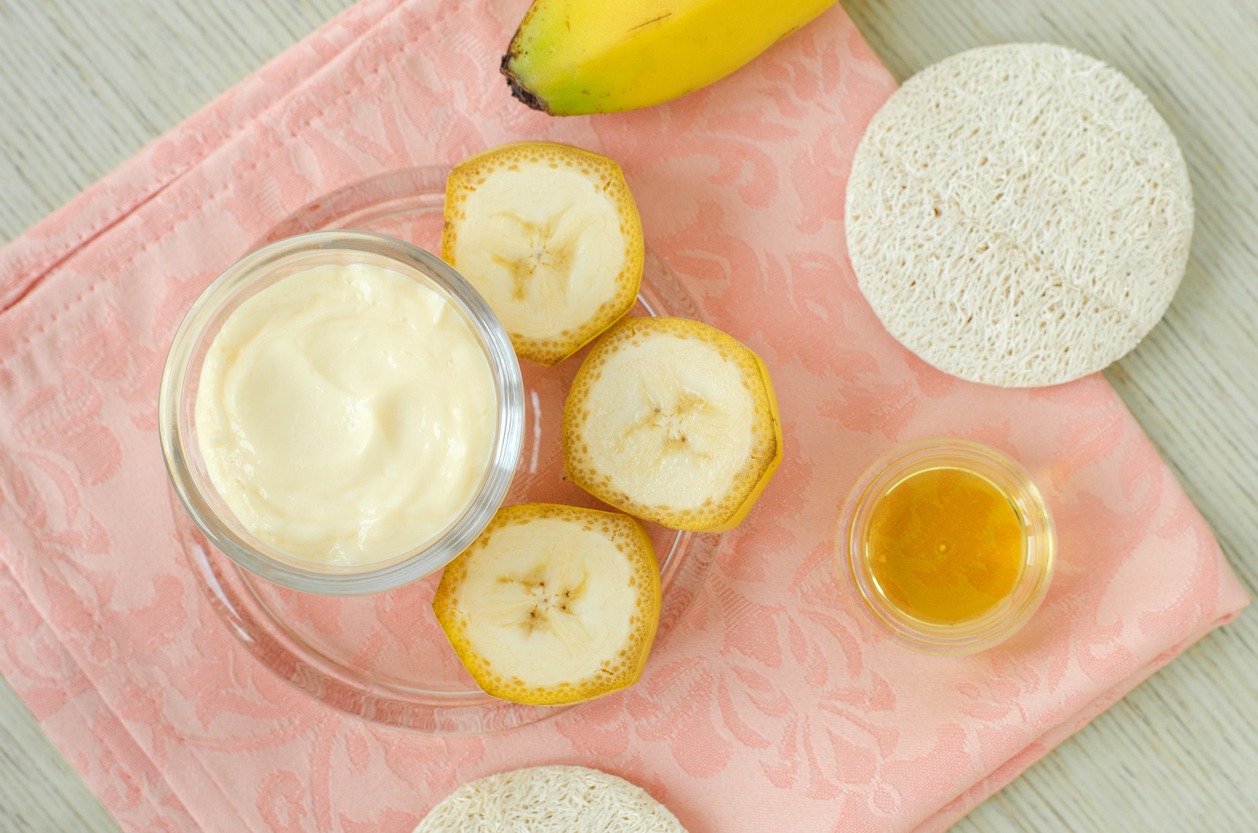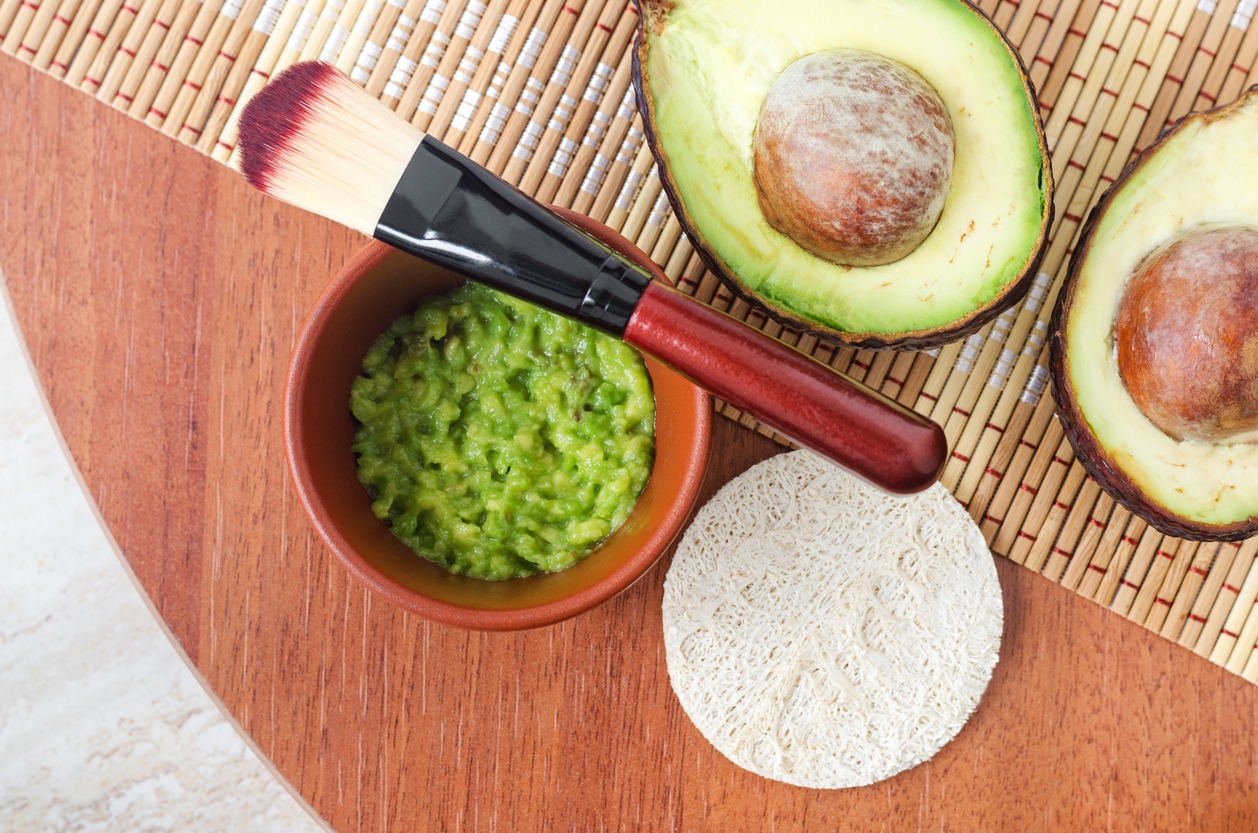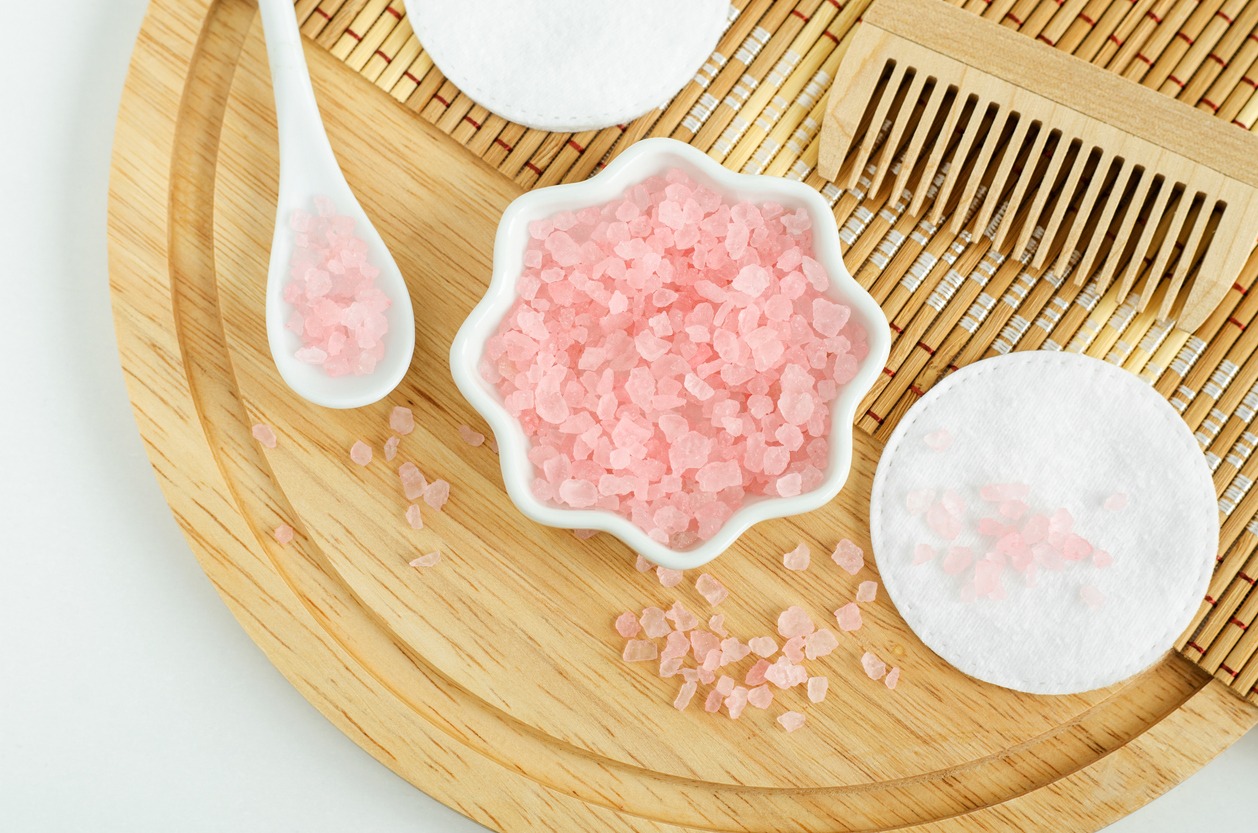The discomfort of a dry, itchy scalp occurs any time of year. Dry skin is characterized by itching, peeling, and irritation because there is inadequate oil production. Drying out of the scalp can have similar effects. However, many treatment alternatives are available, including switching shampoos, applying lotions, trying alternative treatments at home, and more.
What is a Dry Scalp?
When the natural oils and moisture of the scalp are depleted, a condition known as dry scalp develops. When the scalp is dry, the skin on the scalp dries up and flakes off, which can lead to dandruff and an unbearable itching sensation. As with the rest of your body, a dry scalp is prone to flaking.
When the scalp loses too much water or moisture, it can dry. Itching and flaking are possible symptoms of the illness. An itchy, flaky scalp is the result of inflamed skin. Dryness of the scalp can occur for several causes. It is possible that your scalp can get dry and irritated after using certain hair care products. A person’s scalp can be negatively impacted by age and the weather. A dry scalp might be a symptom of a more serious skin problem.
How are Dandruff and Dry Scalp Different?
An itchy, flaky scalp might result from a dry scalp or dandruff. Sometimes it’s just not possible to tell the difference. But too much oil results in dandruff and too little in a dry scalp.
A buildup of dead skin cells is a common side effect of having an oily scalp. Your scalp may become red, oily, and scaly. There is an immediate shedding of scales, followed by the development of dandruff. Larger flakes of dry skin on the scalp are what we call dandruff. It’s extremely prevalent, and it tends to come and go.
Dandruff is typically brought on by seborrheic dermatitis. Multiple factors contribute to the development of seborrheic dermatitis. Natural yeasts can bring seborrheic dermatitis on the skin, stress, or even general health. Seborrheic dermatitis can also affect infants. Cradle cap is the medical term for a baby’s dry, flaky scalp.
While dandruff and a dry scalp can cause itching and flaking, dandruff is caused by an overgrowth of dead skin cells on the scalp. If your scalp is dry, your skin will be, too. Further, the condition’s root cause is unique. Numerous factors, such as certain skin disorders, can lead to moisture loss.
What are the Causes of Dry Scalp?
The main symptom of a dry scalp is a constant itch, but other symptoms include dandruff, pain, and even hair loss. Many things can cause a dry scalp, but the most typical ones are an adverse reaction to a weather shift or a particularly harsh chemical in a hair care product. Even though medical diseases like eczema and psoriasis can be the cause, something as simple as not washing your hair daily or not drinking enough water can sometimes be the culprit.
1. Excessive Washing
If you wash your hair daily, you may be rinsing away the natural oils that keep your scalp moisturized. Excessive drying can cause hair to become brittle and break. Your hair type will determine how frequently you should wash it. Coarser and thinner hair types may only require a weekly wash. The frequency you should wash your hair depends on its type, so consult your hairdresser or dermatologist if you’re unsure.
2. Hair Care Items
Washing your hair can cause contact dermatitis, which causes redness, itching, and scalp flaking. Some shampoos, soaps, and other hair care products can cause an allergic reaction which leads to a dry scalp.
Refraining from scratching your head until you determine the cause of the itchiness could be helpful in not worsening the condition. Scratching can aggravate skin irritation and worsen your condition. If your scalp is itchy, try placing a cool, wet washcloth on it for 15 to 30 minutes several times a day. Anti-itch creams containing cortisone can also be used.
3. Changes in weather
As temperatures drop, humidity levels in the air decrease, making it feel drier throughout the winter. Just like the other skin of your body, the skin on your scalp becomes dry and itchy when the temperature drops. Turning the thermostat to an extreme level can have a similar drying effect.
Avoid using hot water in the shower or bath for healthy hair and skin. Underwater time should be limited to at most 5 to 10 minutes. Your skin’s natural oils will be washed away if you spend too much time in the shower or bath. Run your humidifier to add moisture to the air at home. And when you wash your hair, use a mild, moisturizing shampoo.
4. Eczema
Dry, red, itchy, and cracked skin on the scalp are classic symptoms of eczema, a common skin disorder. For those who suffer from allergies, there is a specific form of eczema known as atopic eczema. If either of your parents had eczema, your risk of developing the condition is higher.
Dry eczema spots on the scalp can be caused by shampoo, conditioner, stress, and climate changes. Hands, elbows, face, and the insides of your knees may also get dry. Don’t use things like strong shampoos that can irritate your skin. If your skin is dry, discuss using an emollient or cream with your doctor.
5. Psoriasis of the Scalp
Psoriasis is characterized by an abnormal proliferation of skin cells caused by an overactive immune system. Accumulating these surplus cells results in plaques, which are dry, flaky areas of skin that can be quite irritating.
Psoriasis can manifest everywhere on the body, including the face, ears, hands, feet, back, and even nails. As a side effect, it can cause irritated areas on your head, face, and neck. Use a medicated shampoo with coal tar for mild cases of scalp psoriasis. There should be a marked improvement in the itchiness.
Remedies for Dry Scalp
Inflammation and itching caused by a dry scalp can be alleviated with a few different at-home treatments. Regardless of what caused your dry scalp in the first place, here is a compilation of several remedies that you can try at home.
1. Coconut Oil
It has long been known that coconut oil can help with various skin conditions, and a dry scalp is no exception. It can help keep the scalp hydrated, and its antimicrobial and antifungal characteristics can help prevent infections. Scientific studies suggest it is also useful in treating atopic dermatitis. The grocery stores and websites both stock coconut oil. Melt some coconut oil and rub it directly into your scalp. Wait to wash your hair for at least 10 minutes after applying this treatment. This will not only aid with a dry scalp but also leave your hair feeling silky.
2. Oil of tea tree
Tea tree oil’s antibacterial, antifungal, and antibiotic characteristics make it useful for treating dry scalp. Therefore, tea tree oil is commonly found in anti-dandruff shampoos. Shampoos containing tea tree oil as an active ingredient are also available and may be marketed toward those who suffer from a dry scalp.
3. “Aloe vera”
Multiple characteristics of aloe vera make it useful for treating dry scalp. It’s a great hydrating agent with anti-inflammatory effects that help calm irritated skin. You may find aloe vera gel or hair care products containing aloe vera on the internet and in many stores. It should be applied directly to the scalp and left on for ten minutes before being washed off.
4. Cider apple vinegar
The beneficial effects of apple cider vinegar, which include alleviating dry scalp problems, are numerous. Its antibacterial properties make it effective against germs and fungi that could otherwise trigger irritation and itching. Its anti-inflammatory and exfoliating properties make it a useful adjunct in treating dry scalp. Apply a mixture of one part apple cider vinegar and two parts water to your scalp. After five minutes, wash it out with a mild shampoo and proceed with conditioning as usual.
5. Witch Hazel
Historically employed in herbal medicine, witch hazel is now commonly found in anti-itch creams for dry and sensitive skin. Used properly, it can alleviate the inflammation that contributes to dry scalp from various medical issues. Moreover, its potent astringent characteristics may alleviate dry scalp complaints. To make a blend, use 1 part liquid witch hazel to 2 parts water or carrier oil. After applying it to your scalp and massaging it for five minutes, you can proceed with your regular hair-washing routine.
6. Mixing baking soda with olive oil
Olive oil is moisturizing, while baking soda is antibacterial and antifungal. The combination of the two can act as an exfoliant for the scalp. If your scalp is dry and you also suffer from dandruff, you should try a mixture of baking soda and olive oil. The combination’s moisturizing, exfoliating, and antifungal characteristics will help eliminate those annoying white flakes. Massage your scalp with a mixture of baking soda and olive oil. If you want to remove any lingering residue, wait 5 minutes before shampooing and conditioning.
7. Banana puree
Bananas can cure dry scalp and dandruff due to their high nutrient and moisture content. They keep your skin supple and protect it from harmful bacteria. When you combine these two advantages, they can help your dry scalp heal. Combine a ripe banana with a few tablespoons of either coconut or olive oil and mash or combine the mixture. To remove it more easily from your hair, mixing it will help. Apply it to your scalp and let it sit for at least ten minutes, preferably fifteen.
8. Yogurt and Eggs
The combination of yogurt and eggs may sound like a strange remedy for a dry scalp, but it turns out that both have their advantages. Yogurt calms the skin and can even act as an exfoliant, while the protein and fat in eggs nourish and protect the scalp from cellular damage caused by free radicals. Plain, non-sweetened yogurt should be used for the recipe’s base, and one egg should be whisked until fluffy before being folded. Use a massaging motion to get it into your scalp, then wait 10 minutes before rinsing. Be sure to rinse with lukewarm or cold water, as hot water can cause the egg to cook and become more stubborn to remove from your hair.
9. Castor oil or Jojoba oil
When used as a moisturizer, jojoba oil can be just as effective as coconut oil in providing immediate relief from dry scalp. Because of its anti-inflammatory qualities, it may be useful in treating many scalp skin problems. If your scalp is dry, try mixing a few drops of jojoba oil with your shampoo. Maintaining a consistent shampooing routine with this method will keep your scalp from being overly dry.
10. Avocados
The avocado’s monounsaturated and polyunsaturated fatty acids can help keep your skin supple and healthy. The avocado itself or avocado oil applied topically helps relieve dry scalp symptoms. Adding bananas to an already effective treatment of avocados can provide further benefits. The topical application of either avocado oil or a blended avocado can alleviate dry scalp and associated symptoms. Before massaging it into your scalp, puree some avocado. Add a few drops of carrier oil, like olive oil. It must only sit for ten to fifteen minutes before being washed out.
Precautions to Take for Dry Scalp
To control and avoid scalp dryness, try the following self-care measures:
- Drink Plenty of Water – You should drink six to eight glasses daily to keep your scalp and skin from drying.
- Regularly massage your scalp – Dry scalp can be effectively treated by massaging oil into the scalp. In addition to hydrating and nourishing the scalp, the pressure of the fingers on the scalp also helps increase blood flow to the area. Olive oil, coconut oil, castor oil, and almond oil are all viable options. Before massaging, you can enhance the experience by adding a few drops of essential oil to the carrier oil. Common choices include lavender oil, tea tree oil, rosemary oil, thyme oil, and peppermint oil.
- Choose shampoos formulated to retain moisture – Use a shampoo with hyaluronic acid, rosemary oil, moringa oil, or almond oil to keep your hair and scalp hydrated. If you can, try to avoid shampoos containing harsh chemicals. In addition, avoiding frequent shampooing is essential
- Use conditioners that provide moisture to hair – The irritation and dryness of the scalp can be prevented and alleviated with moisturizing shampoos and conditioners. You can also use leave-in conditioners or deep conditioning treatments.
- Scalp exfoliation – Create a scalp scrub using Epsom salts or sugar with jojoba, coconut, or olive oil. Rinse your hair after applying the paste and gently rub it into your moist scalp—this aids in eliminating a buildup of dead skin cells.
- Maintain a healthy eating habit – A nutrient-dense diet is crucial for glowing health, reflected in your hair. Eat plenty of eggs, almonds, and seafood to get your daily dose of omega-3 fatty acids. Incorporate avocados, cheese, sweet potatoes, and berries into your diet. Don’t eat sugary foods because they could feed yeast or mold. Vitamin B6 and B12 deficiency, among others, have been linked to cases of dry scalp. All recommended are flaxseed oil, vegetables, fruits, whole grains, bread, and cereals. After discussing supplement use with your physician, you may also do so.
- Avoid washing hair with hot water – Washing your hair in hot water can irritate the scalp and strip the scalp of its natural oils, so it’s best to use lukewarm water instead.
- Manage stress – Hair and scalp health may suffer under stressful settings. To help you cope with stress, try yoga and meditation.
- Turn on the humidifier – The dry air contributes to the irritated scalp. You can’t change the weather, but you can keep your scalp from drying out by using a humidifier at home.
- Avoid heat-based styling – Using heated styling products like blow dryers, curling irons, and flat irons too frequently can dry out your scalp and cause permanent damage to your hair’s roots. Apply a heat-protectant serum before using these styling products.
Conclusion
A dry scalp is annoying, but it’s easily addressed. Changing your hair care products or routine can help alleviate dry scalp in many circumstances, and so can using some tried-and-true home remedies. After two weeks of trying over-the-counter medicines without improvement, it’s time to schedule a visit to the doctor to rule out any serious conditions that would benefit from prescription medication. Hair loss and dry scalp, especially if accompanied by sores or blisters, are symptoms that warrant a visit to the doctor.

